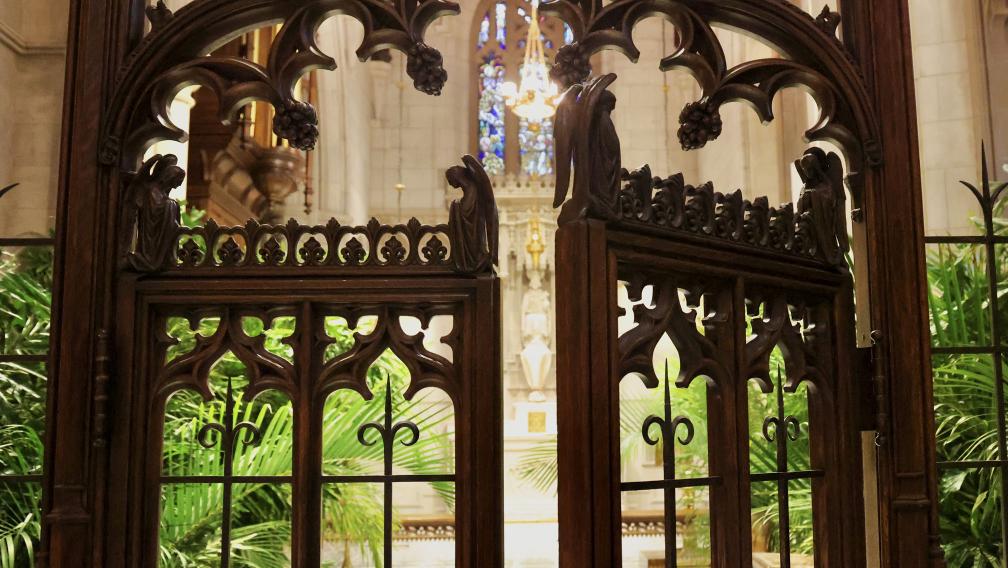“Very truly, I tell you, anyone who does not enter the sheepfold by the gate but climbs in by another way is a thief and a bandit. The one who enters by the gate is the shepherd of the sheep. The gatekeeper opens the gate for him, and the sheep hear his voice. He calls his own sheep by name and leads them out. When he has brought out all his own, he goes ahead of them, and the sheep follow him because they know his voice. They will not follow a stranger, but they will run from him because they do not know the voice of strangers.” Jesus used this figure of speech with them, but they did not understand what he was saying to them.
So again Jesus said to them, “Very truly, I tell you, I am the gate for the sheep. All who came before me are thieves and bandits; but the sheep did not listen to them. I am the gate. Whoever enters by me will be saved, and will come in and go out and find pasture. The thief comes only to steal and kill and destroy. I came that they may have life and have it abundantly.”
John 10:1–10
“I am the gate” is one of Jesus’ seven I am statements in the Gospel of John. These were Jesus’ elemental yet metaphoric explanations and prophecies of who he was, is, and will be. And for those of us who follow Jesus, these statements illuminate who we are — and who we can become.
In some versions of the passage, gate is exchanged for door. But since the imagery is a sheepfold, it seems that gate might be a more appropriate and possibly deliberate word choice. A gate swings both ways — in and out. It is a threshold, a portal.
Note that Jesus did not say he was the gatekeeper. His role is not to choose. That’s ours. All of those who enter through Jesus are welcomed by name, as intimately known as sheep known by their shepherd. Some choose destruction over abundant life and are “strangers,” but they too have names, and God knows them.
Serving as a shepherd and portal to God and God’s abundance, Jesus invites us today into the creative and abundant life into which he called the apostles.
—Kathryn Carroll
THEOLOGY
If we go with Jesus as gatekeeper theology, we might wonder what one needs to do, or be, to “enter through” him. Dan Clendenin writes about this week’s reading from Acts 2:42–47, which shows us that the threshold is crossed not with an exclusive password or grand gesture, performance of piety or rigid compliance, but with holistic intentionality of any act, any time, anywhere.
SOCIAL JUSTICE
In Peter’s first letter, the epistle for this Sunday, the subjects of righteousness and substitutionary suffering are discussed. Miguel A. De La Torre considers how a theology of substitution has been applied to justify the distortion of abundance and the glorification of suffering.
VISUAL ART
Psalm 23 by John August Swanson
MUSIC
Buju Banton and Morgan Heritage sing “23rd Psalm.”
POETRY
“Small Deeps” by Edwina Gately (a good name for this week’s Gospel), the poem included in Clendenin’s essay linked above.
Get the Five Ways In Your Inbox
Sign up to receive reflections and updates from the Faith Formation & Education team.
Coming Soon
This Sunday at 10am, join Discovery for Lamentations in the Bible with the Rev. Beth Blunt, Director of Congregational Life & Liturgy, and the Rev. Yein Kim, Congregational Life & Liturgy.
On May 5–7 at Trinity Retreat Center, you can join Dr. Lisa Bowens, Professor of New Testament at Princeton Theological Seminary, for a retreat on African American Readings of St. Paul, an opportunity to journey through the centuries by engaging select portions of works by Black authors who lived from the 18th to the 20th century.
